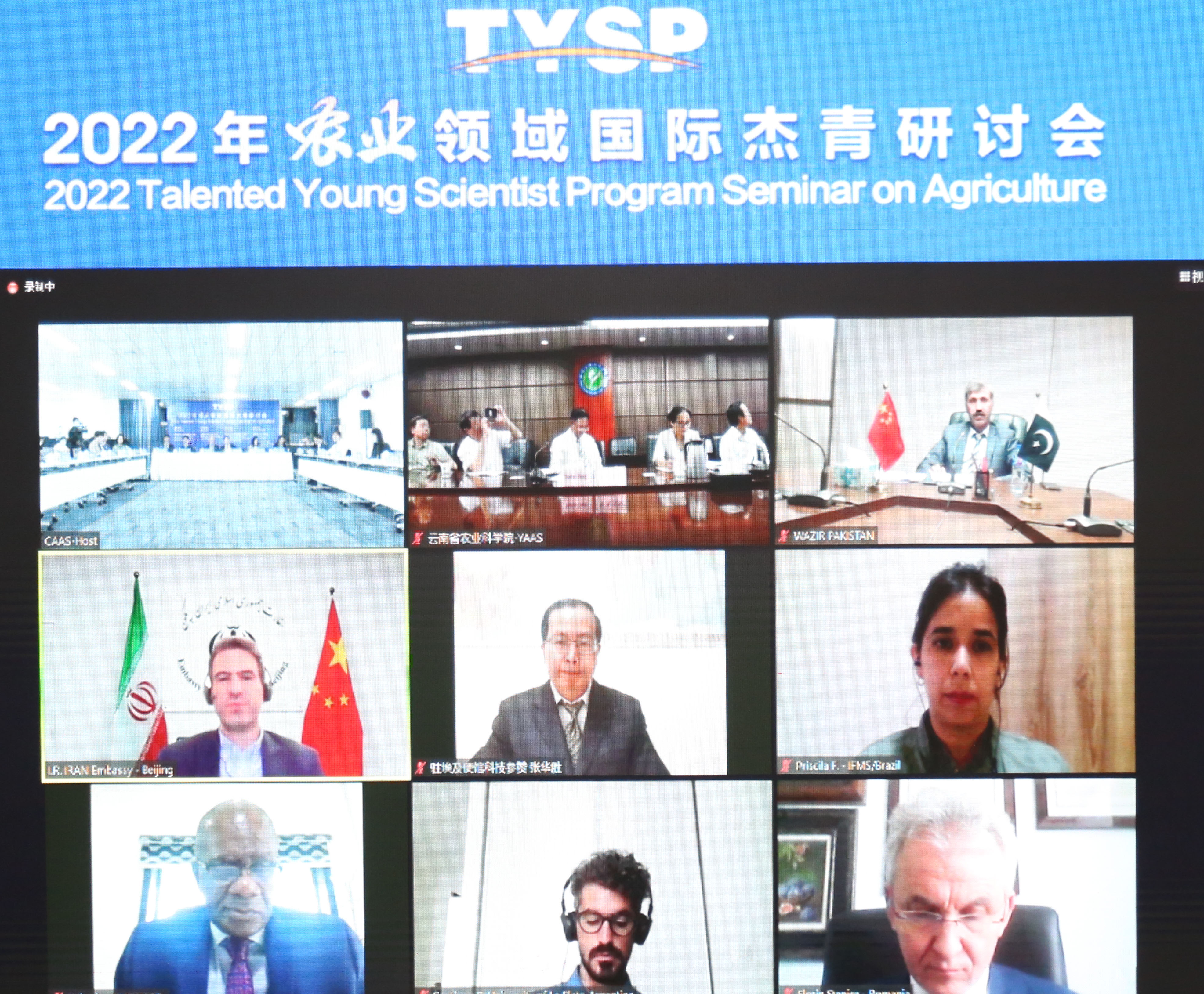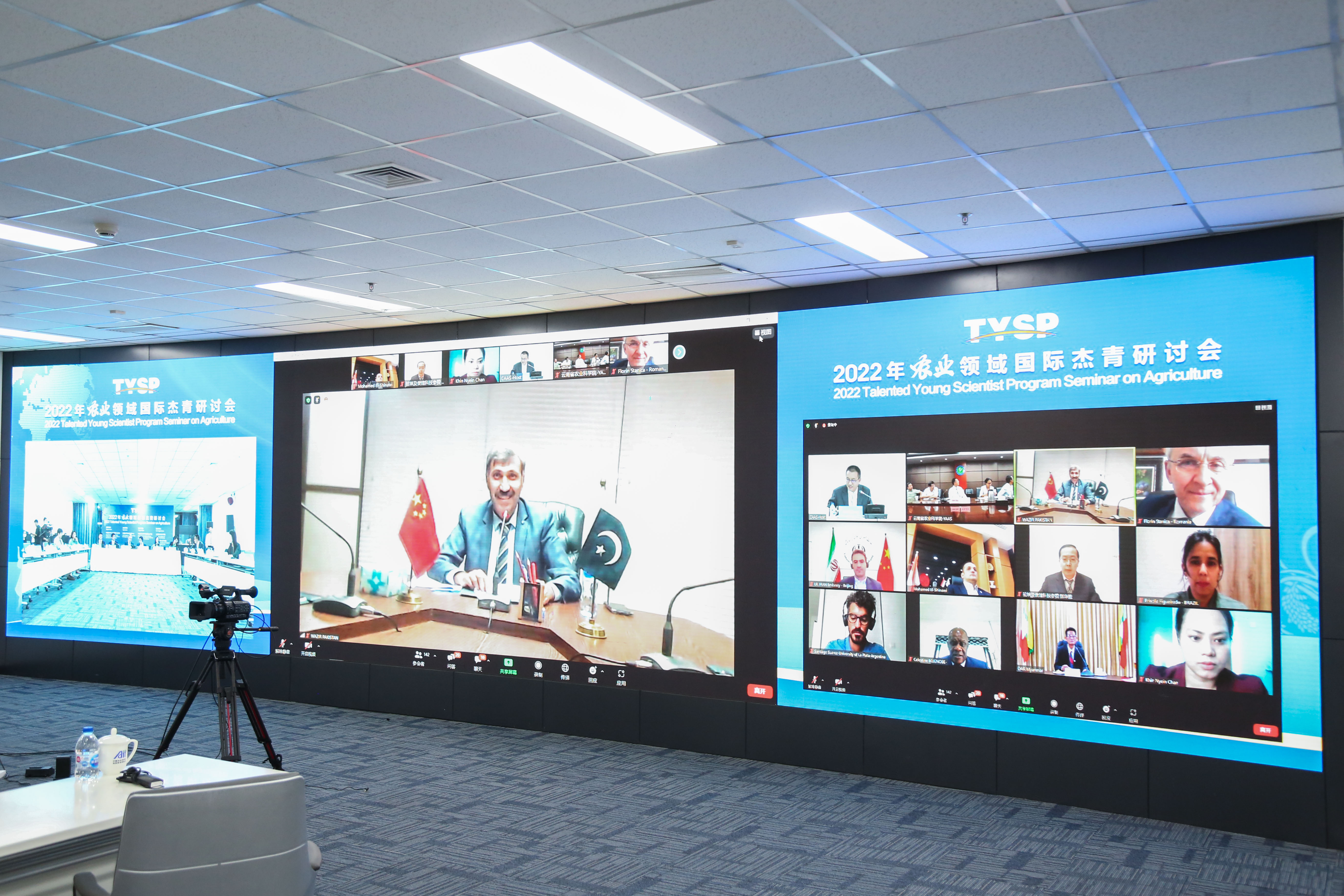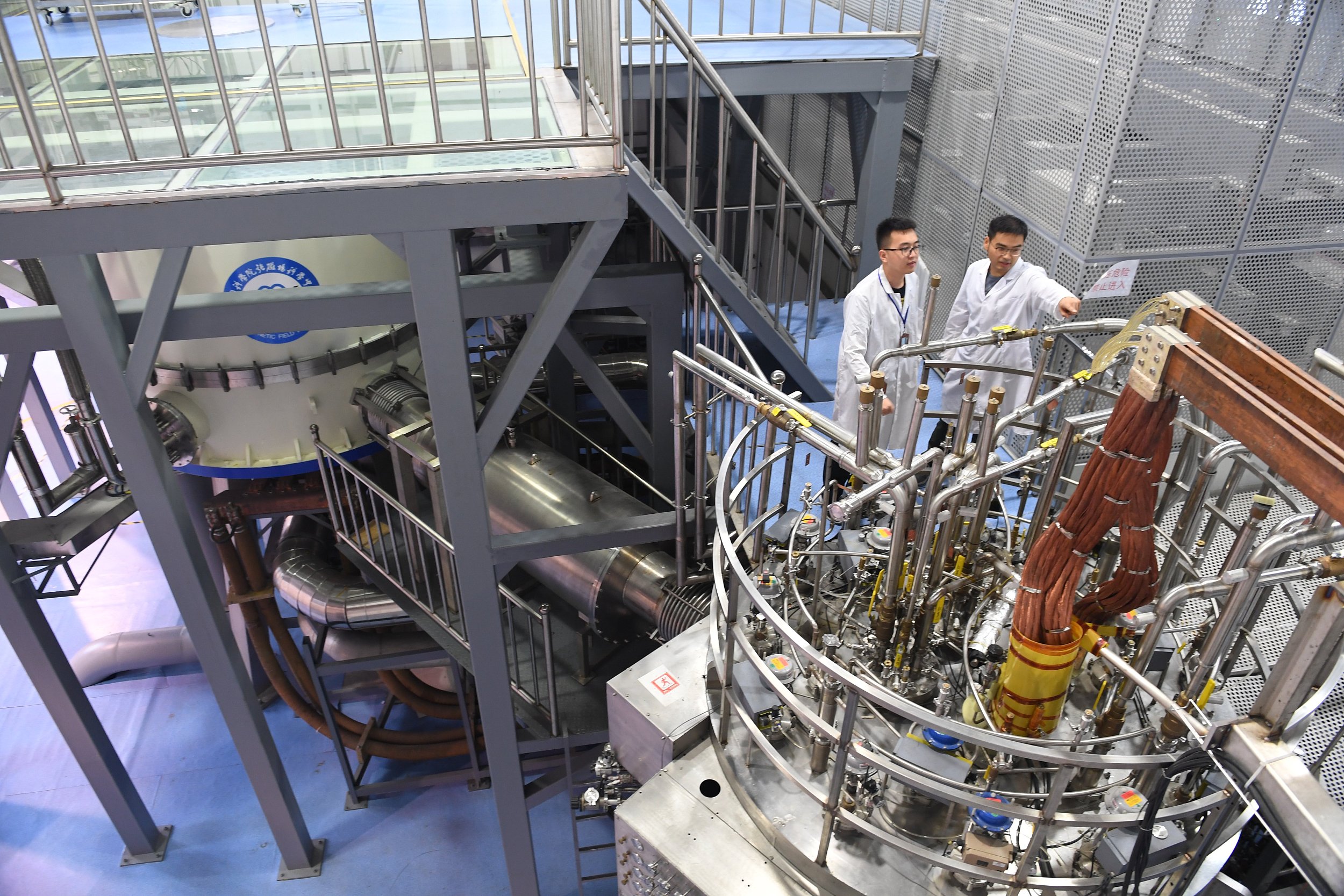TYSP Showcases Solutions for Global Agricultural Development

Participants join the 2022 TYSP Seminar on Agriculture via video link. (PHOTO: CSTEC)
By ZHONG Jianli & LI Linxu
As young scientists are the hope for future sci-tech innovation, it is vital to promote exchanges between the youth in this sci-tech community. To this end, the 2022 Talented Young Scientist Program (TYSP) Seminar on Agriculture held on July 27 provided an effective platform for mutual learning between Chinese and foreign agricultural experts.
The Ministry of Science and Technology (MOST) of China has always attached great importance to international exchanges among young scientists. With its focus on young sci-tech workers from foreign countries, TYSP has become one of the most popular exchange mechanisms, with a large number of participating countries that involve a wide range of expertise, said Xu Jie, deputy director-general of Department of International Cooperation of MOST of China, speaking at the seminar.
Exchanges in the agriculture sector are particularly active under the TYSP framework.
"Through the program, young agricultural scientists and research institutions from various countries have vigorously cooperated with their Chinese counterparts in academic exchanges, resource sharing, as well as the building and improvement of cooperation platforms and models," said Gao Xiang, director-general of China Science and Technology Exchange Center.
In fact, international cooperation in agricultural science and technology serves as an effective means for humankind to address common challenges, such as food security, biosecurity, climate change and green development, according to Mei Xurong, vice president of the Chinese Academy of Agricultural Sciences (CAAS).
During the seminar, TYSP participants from different countries were positive about the role of the program in deepening pragmatic sci-tech cooperation, promoting exchanges of technology and knowledge in agriculture, and providing brighter career prospects.

An official from Pakistan speaks at the 2022 TYSP Seminar on Agriculture. (PHOTO: CSTEC)
"The program showcased a wide variety of case study examples to illustrate the key points in developing the fields of agriculture, health, physics, eco-environment and equipment manufacturing, the challenges involved and how they were dealt with," said Shereen Kamal Assem, vice president of Agricultural Research Center in Egypt, adding that young Egyptian scientists became more identifying and scaling up innovative solutions to their research area.
Hidayat Ullah is one of the beneficiaries of TYSP. As a visiting scholar at CAAS, he was involved in a number of sci-tech projects and published nine SCI papers. Now, he is an associate professor in the University of Swabi and still active in promoting Sino-Pakistan agricultural sci-tech cooperation.
Meanwhile Ruidar Ali Shan, director of the Office of Research Innovation and Commercialization at University of Swabi in Pakistan, believes TYSP is a wonderful initiative which gives young researchers and scientists the opportunity to further strengthen their skills, capacity, and collaboration with renowned teams and scientists during their stay in China.
As the vice-rector of University of Agronomic Sciences and Veterinary Medicine of Bucharest in Romania, Dr. Florin Stanica highlighted that TYSP opened a new chapter for international sci-tech and people-to-people exchanges under the Belt and Road Initiative.
Apart from academic exchanges, TYSP created a direct channel for young scientists from around the world to understand and experience Chinese culture.
In sharing her program experience, Dr. Khin Nyein Chan, deputy director of the Department of Biotechnology of Ministry of Science and Technology of Myanmar, said not only the technical knowledge and lab experience were important, but also the chance to learn about Chinese culture made her stay in China more interesting.
Santiago Suarez, from Argentina's Universidad Nacional De La Plata, said he loved the multicultural environment in the Beijing research lab, and also confessed he is a big fan of Chinese food.


